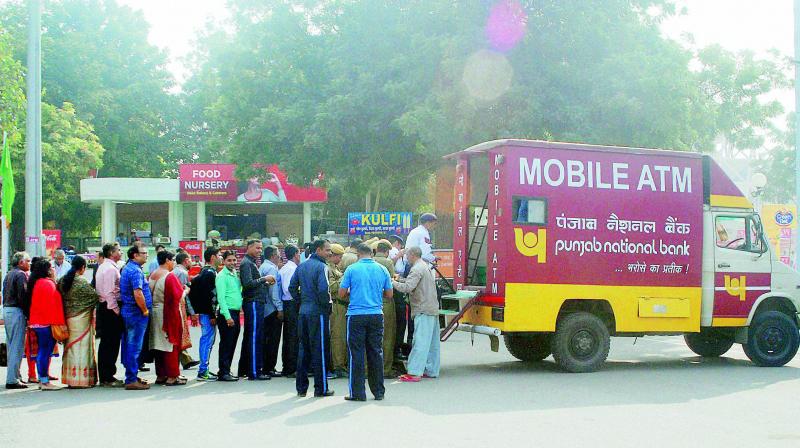Penalty likely on unusual high deposits before income tax returns

New Delhi: The I-T Department may slap a hefty 200 per cent penalty on unexplained high cash deposits in banks even before annual income tax returns are filed so as to prevent black money being converted into white during the 50-day window provided for turning in the junked Rs 500/1000 notes, a finance ministry official said. It is also collating data on spurt in deposits in zero- balance Jan Dhan accounts and will slap a 200 per cent penalty on unexplained high value cash deposits, he said.
After withdrawing old 500 and 1,000 rupee notes, the government has allowed the banned notes to be deposited in bank accounts or exchanged for new legal tenders till December 30. This has led to cash balances popping up in millions of Jan Dhan accounts, opened under a government scheme for beneficiaries to get their entitlements like LPG subsidy.
“Tax Department is collating data on spurt in Jan Dhan accounts. It will analyse all data and impose tax plus a 200 per cent penalty in cases of unexplained high value deposits,” the official said. Under Section 12 of the Prevention of Money Laundering Act, tax department can ask for any information from any agency including the Reserve Bank of India and co-operative banks besides all scheduled banks. To prevent misuse of the 50-day window provided for exchange of genuine holdings of the scrapped 500 and 1,000 rupee notes, the tax department may resort to imposing tax and penalty even before annual Income Tax Return (ITR) is filed, the official said.
“Any unexplained source of income can be charged with tax and a 200 per cent penalty on it. That can happen before filing of ITR. No retrospective amendment is required if high value deposits are caught before filing ITR,” he said.
The finance ministry has carried out series of advertisements in newspapers assuring people that their hard earned money is safe and depositing junked Rs 500/1,000 notes of up to Rs 2.50 lakh in bank accounts will not be reported to the tax department.
It has also stated that farm income continues to remain tax free and can be easily deposited in bank. Small businessmen, housewives, artisans, workers can also deposit cash in their accounts without any apprehensions, it has said. On farm income, the official said the tax department will match the acre of land the person has and the deposits made in the bank account to identify any discrepancy.
Jewellery sales come under taxmen’s scan
Intensifying the crackdown on laundering of illicit wealth, tax authorities are keeping a close vigil on jewellers to check if sales are being broken down into sub- Rs 2 lakh to avoid quoting of PAN.
After the government banned old 500 and 1,000 rupee notes, gold and bullion are said to be favoured route for laundering of ill-gotten wealth. Gold was sold as high as '50,000 per ten grams last week against the market price of Rs 31,000 as gold and bullion was said to be used to convert the debunked currency. A 20-40 per cent haircut in the value of defunct currency was also being resorted to launder black money.
“PAN is mandatory for jewellery sale of over Rs 2 lakh. We are keeping a watch on jewellers to see if they are breaking their sales into parts of less than Rs 2 lakh,” CBDT chairman Sushil Chandra told reporters here. Necessary action and penalty, he said, would be initiated wherever violations are found. “Whether it is deposit of cash or sale of goods in old currency note, we are keeping a watch and taking steps,” he said after inaugurating the CBDT pavilion at IITF.

